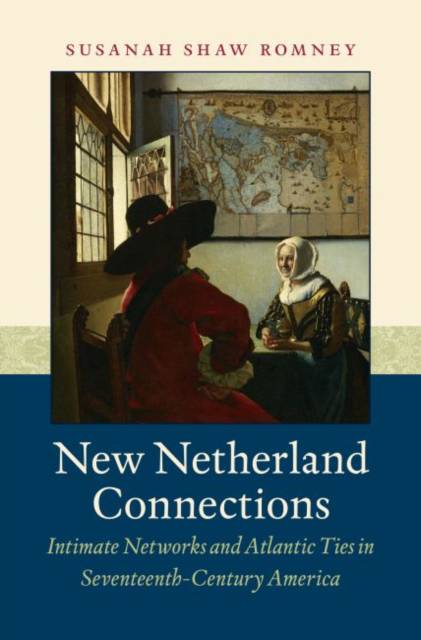
Door een staking bij bpost kan je online bestelling op dit moment iets langer onderweg zijn dan voorzien. Dringend iets nodig? Onze winkels ontvangen jou met open armen!
- Afhalen na 1 uur in een winkel met voorraad
- Gratis thuislevering in België vanaf € 30
- Ruim aanbod met 7 miljoen producten
Door een staking bij bpost kan je online bestelling op dit moment iets langer onderweg zijn dan voorzien. Dringend iets nodig? Onze winkels ontvangen jou met open armen!
- Afhalen na 1 uur in een winkel met voorraad
- Gratis thuislevering in België vanaf € 30
- Ruim aanbod met 7 miljoen producten
Zoeken
New Netherland Connections
Intimate Networks and Atlantic Ties in Seventeenth-Century America
Susanah Shaw Romney
€ 46,45
+ 92 punten
Omschrijving
Susanah Shaw Romney locates the foundations of the early modern Dutch empire in interpersonal transactions among women and men. As West India Company ships began sailing westward in the early seventeenth century, soldiers, sailors, and settlers drew on kin and social relationships to function within an Atlantic economy and the nascent colony of New Netherland. In the greater Hudson Valley, Dutch newcomers, Native American residents, and enslaved Africans wove a series of intimate networks that reached from the West India Company slave house on Manhattan, to the Haudenosaunee longhouses along the Mohawk River, to the inns and alleys of maritime Amsterdam.
Using vivid stories culled from Dutch-language archives, Romney brings to the fore the essential role of women in forming and securing these relationships, and she reveals how a dense web of these intimate networks created imperial structures from the ground up. These structures were equally dependent on male and female labor and rested on small- and large-scale economic exchanges between people from all backgrounds. This work pioneers a new understanding of the development of early modern empire as arising out of personal ties.
Using vivid stories culled from Dutch-language archives, Romney brings to the fore the essential role of women in forming and securing these relationships, and she reveals how a dense web of these intimate networks created imperial structures from the ground up. These structures were equally dependent on male and female labor and rested on small- and large-scale economic exchanges between people from all backgrounds. This work pioneers a new understanding of the development of early modern empire as arising out of personal ties.
Specificaties
Betrokkenen
- Auteur(s):
- Uitgeverij:
Inhoud
- Aantal bladzijden:
- 336
- Taal:
- Engels
- Reeks:
Eigenschappen
- Productcode (EAN):
- 9781469633480
- Verschijningsdatum:
- 1/02/2017
- Uitvoering:
- Paperback
- Formaat:
- Trade paperback (VS)
- Afmetingen:
- 163 mm x 239 mm
- Gewicht:
- 485 g

Alleen bij Standaard Boekhandel
+ 92 punten op je klantenkaart van Standaard Boekhandel
Beoordelingen
We publiceren alleen reviews die voldoen aan de voorwaarden voor reviews. Bekijk onze voorwaarden voor reviews.











